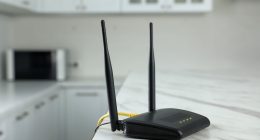From fast food to farming, Covid-19 has accelerated the rise of the worker robots. This in turn will put more jobs at risk and makes the need to reframe society ever more urgent
As the coronavirus pandemic enveloped the world last year, businesses increasingly turned to automation in order to address rapidly changing conditions. Floor-cleaning and microbe-zapping disinfecting robots were introduced in hospitals, supermarkets and other environments. Some enterprises found that, given the new emphasis on hygiene and social distancing, robotic operations offered a marketing advantage. The American fast food chain White Castle began using hamburger-cooking robots in an effort to create “an avenue for reduced human contact with food during the cooking process”.
With the worst days of the pandemic hopefully now behind us, the jobs story has turned out to be unexpectedly complicated. While overall unemployment rates remain elevated, both the US and the UK are experiencing widespread worker shortages, focused especially in those occupations that tend to offer gruelling work conditions and relatively low pay. Even as a quarter of a million of British workers who held jobs in 2019 remain unemployed, job vacancies are up 20% from pre-pandemic levels as employers struggle to fill many positions. The reasons behind the worker shortages are not entirely clear. A common assumption is that extended payments to furloughed workers allowed people to remain out of the workforce. However, evidence from a number of US states that moved to discontinue unemployment benefits early suggests that the extended payments may not have played a major role. Many workers may have simply reassessed their willingness to do difficult and often unrewarding jobs in return for low pay. In the UK, Brexit has greatly exacerbated the situation. At least 200,000 EU nationals, primarily from eastern Europe, who once filled roles in areas such as agriculture, transportation and logistics, have left the country and may never return.







